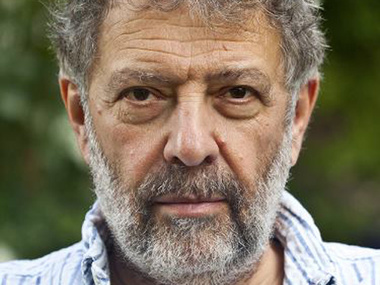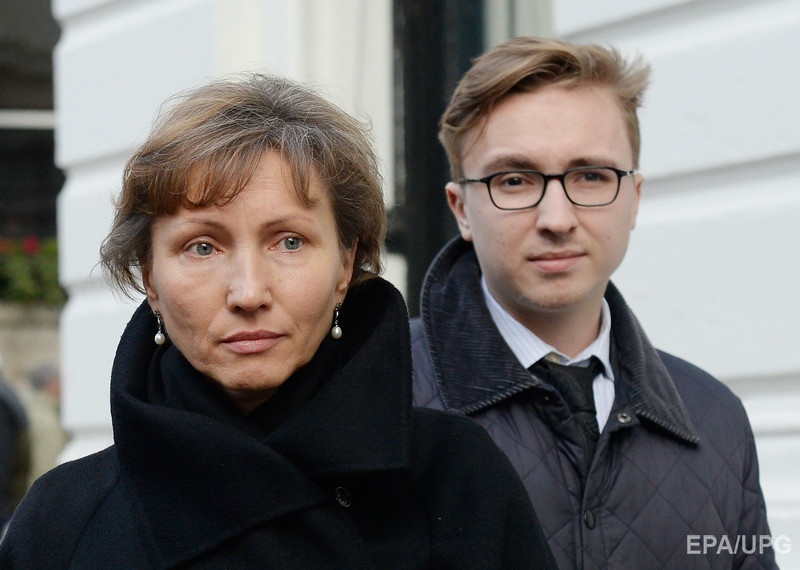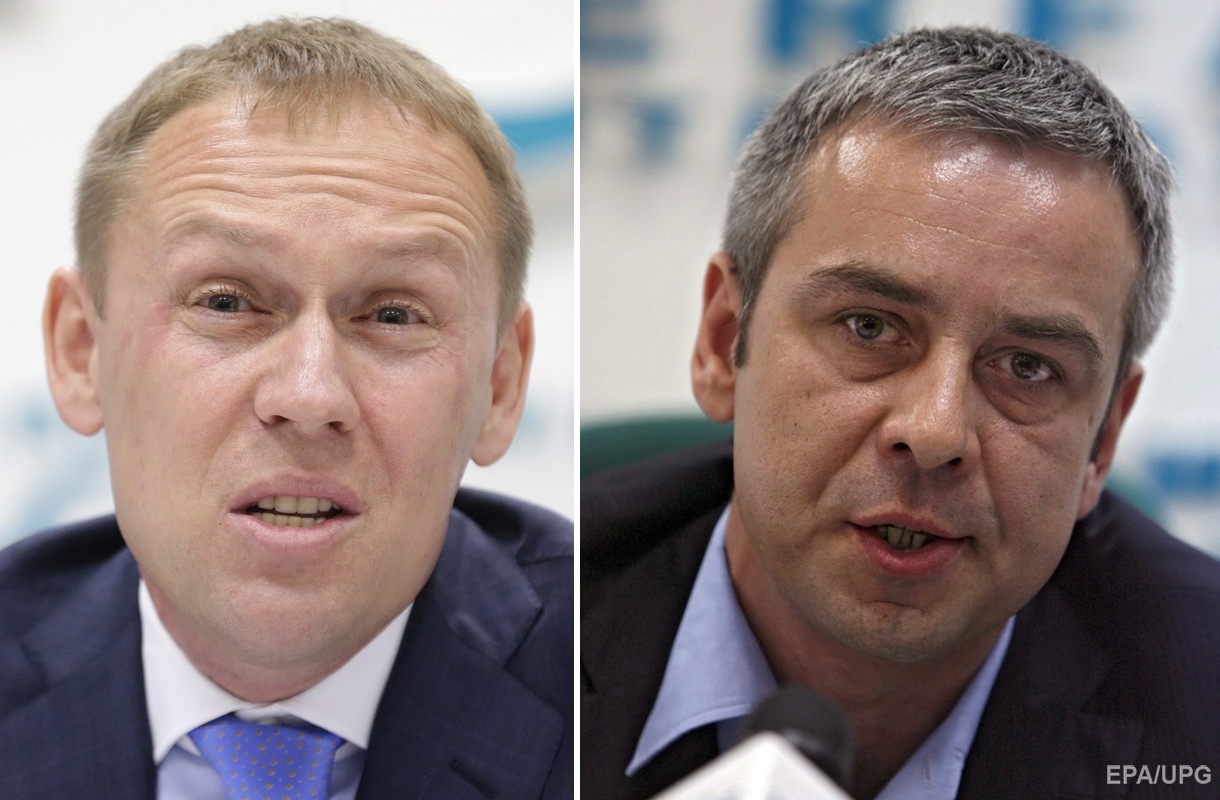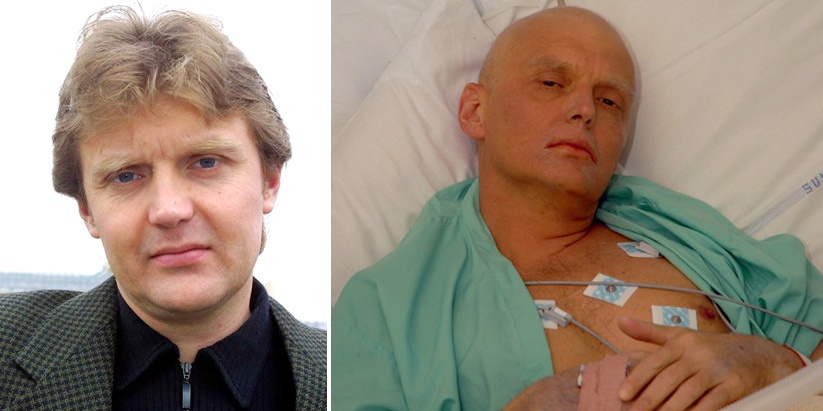Public hearings on the murder of the former Russian Federal Security Service (FSB) officer, Lieutenant Colonel Alexander Litvinenko began in the UK capital on January 27; he died on November 23, 2006 at University College London Hospital of radiation sickness caused by radioactive polonium-210 traced in his body. According to the British investigation, Litvinenko was poisoned by the ex-employee of the Chief Directorate of the Russian Federation and the State Duma deputy from the Liberal Democratic Party Andrey Lugovoy and his business partner, businessman, and former State Security Committee agent Dmitry Kovtun. The purpose of the current public hearings is to determine whether the fled FSB officer was killed on the orders of the Russian authorities.
One of the witnesses to the case is Alexander Goldfarb, Litvinenko’s friend and associate. It was Goldfarb who, on the request of the disgraced oligarch Boris Berezovsky, helped the former FSB officer and his family to flee from Russia to Turkey and then to England where he was granted political asylum. Goldfarb helped publish Litvinenko’s book "Lubyanka Criminal Group" describing the "specific techniques" of the Russian security services, links between the Kremlin and the criminal world and high-profile murders both before and during Vladimir Putin’s presidency.
Alexander Goldfarb is a Soviet dissident, scientist, biologist, and writer. Left the USSR in 1975, worked in the Israeli Weizmann Institute, Max Planck Institute in Munich, Columbia University in New York, and headed the International Foundation for Science founded by George Soros and the Foundation for Civil Liberties established by Berezovsky. In the interview to the GORDON , Goldfarb shared his version of the murder of Litvinenko and Putin’s interest in it.
When the court was studying secret materials, it came to a conclusion that Litvinenko’s murder was ordered by the Russian authorities
– You visited Kiev before the public hearing on Litvinenko’s murder in London. Why?
– I was on my way from New York to London. Alexander Litvinenko’s foundation that I head has a limited budget, we need to save taking into account that I fly several times a month. A direct flight from New York to London costs about a thousand dollars, while if you fly via Kiev it costs about $ 500 with all the overheads such as transfers, accommodation, etc.
– Are financial difficulties connected with the death of Boris Berezovsky who was the main sponsor of Litvinenko’s foundation?
– In 2012, a year before his death, Boris stopped sponsoring us, we were left without funds. Previously, the funds were spent on the legal efforts of Litvinenko's wife Marina for the organization of public hearings on the murder of her husband. It is a very serious, time-consuming, and expensive process. Marina was suing the British government for several years and had to pay lawyers.
After Berezovsky stopped financing the foundation, we began to raise funds ourselves. We issued a call and raised about GBP 50 thousand. Not only Russians, but also British people who sympathized with Litvinenko and wanted a public inquiry into this high-profile murder donated money. I would like to take this opportunity to thank everyone.
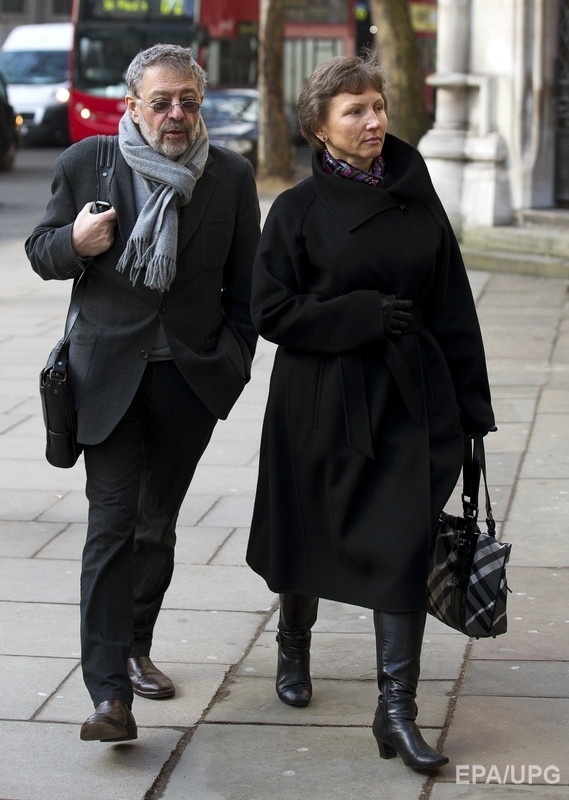 Alexander Goldfarb and Alexander Litvinenko's widow Marina in front of the Royal Court in London. After the husband's death in 2006, Marina Litvinenko has been trying to achieve public hearing of the case for many years. Photo: Kerim Okten / ЕРА
Alexander Goldfarb and Alexander Litvinenko's widow Marina in front of the Royal Court in London. After the husband's death in 2006, Marina Litvinenko has been trying to achieve public hearing of the case for many years. Photo: Kerim Okten / ЕРА
The foundation has not needed major injections for six months because Marina won the trial against the UK government and received state funding to pay all legal expenses. Today, the funds of Litvinenko’s foundation are spent on current expenses – tickets, accommodation, transfer, etc. We have enough money for this, but we try to save.
– What is the difference between public hearings and litigation?
– Public hearings are held by a special commission established by the UK government. Similar hearings were held in the United States after the attacks of September 11, 2001. When there is an event of state or interstate significance, but there is no way to resolve the issue through the court, the government has the right to establish a commission with broad powers to investigate the incident. The decision of the commission chairman is equivalent to a court decision. For example, if the chairman tells me, "You will go to prison for disclosure of classified information announced at the commission meeting," but I do not obey, I can be easily put behind bars.
– It means that a public hearing is appointed when there is no way to resolve an issue through the court. Why was a government commission required in the case of Litvinenko’s getting poisoned?
– Court hearings in London had reached a deadlock by the beginning of 2014. It happened because Sir Robert Owen, the coroner who conducted the inquiry, requested the materials of British secret services for examination (coroner is a special judge in the UK, the USA and some other countries whose duties include investigation of death occurred under unusual or suspicious circumstances. –GORDON).
There were two groups of documents in the investigation of Litvinenko's death. The first one included the materials of the criminal case instigated by the British police, according to which the alleged perpetrators of the murder were Andrey Lugovoy and Dmitry Kovtun. The second group of documents was collected by the British secret services, the Ministry of Defence and the UK Atomic Energy Authority that investigated the origin of polonium. Each of these agencies led their own investigations.
 Alexander Litvinenko with his wife Marina and son Anatoly right after his escape from Russia. London, 2000. Photo:
Alexander Litvinenko with his wife Marina and son Anatoly right after his escape from Russia. London, 2000. Photo:
Francesco Guidicini / from Marina Litvinenko's archive
When Sir Robert studied all the materials, including the classified ones, he came to a conclusion that the classified documents provided evidence that the Russian Federation was behind Litvinenko’s death. It means that Lugovoy and Kovtun were only performers, while the murder was ordered by Russian authorities. The British government then filed a motion that all documents related to the investigation should be classified except for the criminal case materials.
– Why?
– Sir Robert considered the petition of the British government and said that he had to accept this petition with regret because declassification of the documents will cause damage to the foreign policy and security of Great Britain.
There is a legal norm called open justice in England, according to which the court may not consider secret evidence. It means that the court may not consider evidence or testimony if they cannot be made public. As a result, the trial on Litvinenko’s case reached a deadlock. Sir Robert made a statement that he could not proceed with the case because, on the one hand, he knew what happened from the classified material, on the other hand, he could not use it in the open court. The coroner emphasized that if the court will only rely on the open data, the verdict would be erroneous. As a result, Sir Robert closed the judicial inquiry and urged the government to establish a special commission that would have the right to examine the classified materials and rely on them in making their decisions. The government refused to do it, and Marina Litvinenko sued it.
– The British government?
– Yes. The Court of Appeal made a decision in favour of Marina, and the British government had no choice but establish a commission that commenced public hearings on January 27.
Marina Litvinenko with her son Anatoly in front of the Royal Court in London before public hearings. January 27, 2015. Photo: Facundo Arrizabalaga / ЕРА
The British government knew about the trace of the Kremlin, but it did not want to disclose anything
– It sounds fantastic for me as a Ukrainian citizen: the government not only lost trial to Marina Litvinenko, but will also pay all legal fees.
– The hearings will consist of two parts, an open one and a closed one. The open part has already begun, it will last for two months, and all unclassified materials will be made public – police reports, medical examinations, etc. The press will be asked out of the courthouse, only Sir Robert and state lawyers will remain and consider all the classified documents relating to Litvinenko’s murder. Upon completion of the hearings, Sir Robert will write a final report with conclusions he made while examining the case.
– Suppose Sir Robert will come to a conclusion that Lugovoy and Kovtun are only performers, and the murder was ordered by the authorities of the Russian Federation. What will it mean for Russia and Putin personally?
– Let us start with Lugovoy and Kovtun. Sir Robert’s conclusions will not mean anything new for them – they will both be immediately arrested as soon as they leave the territory of the Russian Federation. Another thing is that the public did not know evidence against the two suspects (evidence are not to be disclosed before the trial of the accused). Now that the public hearings are held, we will finally find out why Lugovoy and Kovtun are considered prime suspects of the murder. They are believed to have left a radioactive trail in London. The hearings will announce where exactly in the city polonium was identified and in what quantities, CCTV records will be presented, and so on. Generally, everything the police and the prosecutor's office have will be disclosed.
The former employee of the Chief Security Directorate of the Russian Federation and the State Duma deputy from the Liberal Democratic Party Andrey Lugovoy and his business partner, businessman, and former KGB agent Dmitry Kovtun. Both of them met Litvinenko at the Millennium Hotel in London on November 1, 2006. The same evening, the former FSB officer felt sick and was hospitalized with symptoms of food poisoning. According to the British police, polonium had been mixed in the tea Litvinenko drank during the meeting with his Russian friends. Lugovoy and Kovtun plead not guilty. Lugovoy said at a press conference in Moscow in 2007 that the British secret services, the "Russian mafia", or Boris Berezovsky might have been involved in Litvinenko's death. Photo: ЕРА
As far as the Kremlin is concerned... If a conclusion is made based on the classified data that the Russian authorities stand behind Litvinenko’s murder, it will be a major factor that will affect international politics. Nobody can say so far how exactly it will affect it.
– Why did the British government insist on prohibition against the review of classified material in court a year ago but agreed to do it now?
– Because the Court of Appeal bound the government to do it upon Marina’s suit. The British government had quite a clear position until the spring 2014 that Litvinenko’s murder was a criminal offense: two people came to London and killed the third person. Generally, they considered it...
– ... a British murder?..
– ... without far-reaching political and espionage conclusions. Naturally, the British government knew about the Kremlin's trace from the very beginning, but it did not want to disclose anything. Besides, information that Alexander Litvinenko collaborated with the British MI6 secret intelligence service and security services in Spain leaked into the Internet.
The first mention of this appeared on the WikiLeaks web-site (an international non-profit organization that publishes classified information from anonymous sources. The founder of WikiLeaks is the Australian Internet journalist and TV presenter Julian Assange. – GORDON). Marina Litvinenko later confirmed that her husband consulted the British intelligence services during his last years. The British government neither confirmed nor disproved this information.
Tons of Afghan drugs were delivered to Western Europe through the St. Petersburg sea port. Putin covered this business
– We know from WikiLeaks materials and indirect sources what kind of cooperation Litvinenko had with MI6 and the Spaniards, though it is officially classified information.
– What exactly do we know?
– That Alexander consulted English, Spanish, and probably Italian intelligence services regarding Russian organized crime in Western Europe. Actually, he was doing what he specialized in when he was still in Russia. Roughly speaking, Litvinenko was an expert on Russian gangsters: he knew all crime bosses, their ins and outs, their connections, etc. There are many such bosses in Russia, they are gradually moving to Europe, the Western intelligence services hunt them, so Alexander proved to be useful.
Litvinenko worked in Spain for the last two years of his life where the local police and secret services arranged a large-scale operation to expose the Russian mafia. In particular, several hundred bandits were arrested, their houses were confiscated, their bank accounts were blocked. The operation was originally called "Wasp", later "Troika". It was a serious blow at the mafia, and Alexander was very helpful explaining the Western intelligence services, where the Russian organized crime groups in Europe originated from.
– And where do they originate from?
– The Russian mafia is a complex structure with intricate relationships and business interests; it appeared after the collapse of the Soviet Union at the dawn of oligarchic capitals. The Tambov criminal group is of particular interest. Never heard of it?
– Thank God, no.
– Several criminal groups were acting in the Russian Federation, one of which was the Tambov group. Despite the name, it was established in Saint-Petersburg: in 1980, it was just a gang that was engaged in racketeering, and it came into business in 1990. This business was closely related to the City Council of St. Petersburg and the local directorate of the Federal Security Service.
– The current Russian president headed the Committee of Foreign Relations of the City Council of St. Petersburg then and was actually the deputy of the Mayor Anatoly Sobchak.
– It was then that close ties between the Tambov organized crime group and Putin’s closest environment were established. The Tambov group got very rich later and went to Europe while Putin and his friends went to Moscow...
– ...Not just to Moscow - straight to the Kremlin.
– But they retained the ties. When the Spaniards started working with the leaders of the Tambov group Alexander Malyshev and Gennady Petrov, it turned out that they had protection at the highest level in Moscow. It was then that Litvinenko came in handy for the Western intelligence services; he explained that it was not surprising because the Tambov group went on barbecues with Putin back in 1990, so he covered them.
 St. Petersburg criminal leader Alexander Malyshev, repeatedly tried including cases for murder. In June 2008 after Litvinenko’s death, he was arrested in Spain and charged with money laundering, arms trafficking, contract murders, extortion, drug trafficking, forgery and smuggling. Photo: mzk1.ru
St. Petersburg criminal leader Alexander Malyshev, repeatedly tried including cases for murder. In June 2008 after Litvinenko’s death, he was arrested in Spain and charged with money laundering, arms trafficking, contract murders, extortion, drug trafficking, forgery and smuggling. Photo: mzk1.ru
In general, Alexander helped the Western services to understand the level of criminalization of the Kremlin. Litvinenko’s book "Lubyanka Criminal Group" brings charges against Putin, namely for his involvement in laundering money of Colombian drug traffickers. Tons of Afghan drugs were delivered to Western Europe through the St. Petersburg seaport controlled by the Tambov group. Putin covered this business.
With Litvinenko’s help, investigation against the Russian mafia in Europe went so far that the Russian President’s closest associates appeared in the case. According to my version, it was the main motive for the Alexander’s murder.
In the 1990s, the scale of relations between the authorities and criminals amounted to tens of millions dollars, but there was a division then: some went to Moscow and began developing the country's riches (tens of billions dollars were in question), while others moved to Western Europe. I do not think that the Kremlin is now trying to take the former "partners" out of prisons so that they would not talk too much. They have no common business now, but the Russian authorities do not want their former mafia connections to be made public.
 Gennady Petrov during his arrest by the Spanish police. Photo: svoboda.org
Gennady Petrov during his arrest by the Spanish police. Photo: svoboda.org
Polonium was found in Litvinenko’s body by chance three hours before his death. Litvinenko died and did not know what he was poisoned with
– Why did Litvinenko’s murderers choose such a dangerous substance as polonium that could irradiate themselves? Was not it easier to use a knife or a gun?
– It is not so easy to kill a man and escape uncaught in London, it is not Kiev or Moscow. Criminals are really caught in England, and rather quickly. Polonium was used because it is almost impossible to trace it in the human body if one does not know what to look for. The killers knew that neither the police nor the pathologists, nor the special services had equipment to detect this radioactive substance.
If you remember physics from school, there are different types of radioactivity. Basically, everybody is used to working with gamma radiation, but polonium has alpha radiation, which is not recorded by the Geiger counter. Special equipment that is only available in specialized nuclear laboratories is required to trace polonium.
– However, the British doctors found polonium in Litvinenko’s body. How?
– It was not done by the doctors but by police officers together with scientists from the atomic agency, and it was quite by accident and only three hours before the Alexander’s death. If Litvinenko had died a day earlier, no one would have ever found polonium in his body. The idea to check the patient against alpha radiation occurred to a British professor. Alexander died and did not know what exactly he was poisoned with.
Alexander Litvinenko died on November 23, 2006. He spent the last three weeks of his life at University College London Hospital where doctors tried to identify the substance used to poison the patient. The fact that this substance was polonium-210 became known three hours before the death of the former FSB officer. The autopsy revealed that Litvinenko suffered from multiple visceral failure caused by acute radiation sickness. Photo: Wikipedia, EPA
Berezovsky apologized to Litvinenko for involving him to the conflict with Putin. Alexander waved away the apologies, "Boris Abramovich, I am not a little boy, I knew what I was involved in"
– When did you last see Litvinenko alive?
– A few hours before Alexander slipped into a coma.
– Did he regret having got involved in the investigation of the Russian mafia in Europe and its relations with the Kremlin?
– Alexander was a talented professional special agent, and he was a chancer. It was his job. He had nothing to regret. Anyway, I did not hear anything of the kind when Berezovsky came into the ward and apologized to Litvinenko.
– And what did Boris Abramovich apologize for?
– For involving Alexander in his conflict with Putin. Litvinenko waved away the apologies, "Boris Abramovich, I am not a small boy, I knew what I was involved in."
– On March 23, 2013, on the day of Berezovsky’s death, the press secretary of the Russian president Dmitry Peskov said that Boris Abramovich wrote a letter to Putin two months before the suicide, in which "he apologized for the mistakes and asked to be given an opportunity to return to Russia." Do you believe it?
– I do not believe, I know it, though, God knows, I do not want to believe. Existence of the letter was confirmed by several sources. I think that Boris really hanged himself. He was in clinical depression for a long time after he had got ruined. He tried to receive treatment, his psychiatrist confirmed it at the trial, but... Boris was extremely depressed and very lonely for the last six months of his life.
– Why send a letter of repentance to a long-standing personal enemy before dying?
– Because one goes off one’s nut in depression. This disease leads to irrational actions, especially in people who are in the situation of an absolute personal failure. Boris was active and cheerful as long as he was winning, but when he lost the trial to Roman Abramovich, he broke down. Unfortunately. I am very sorry for Boris. I liked him.
 Alexander Litvinenko was buried in a closed sarcophagus at the Highgate cemetery in London. Photo: Lena Breitner / Twitter
Alexander Litvinenko was buried in a closed sarcophagus at the Highgate cemetery in London. Photo: Lena Breitner / Twitter
– Many people believe that Litvinenko was a double agent who sold his homeland: special services do not forgive betrayal, so the former Security officer "got what he deserved."
–
Actually, Alexander worked against one and the same enemy, the Russian organized crime, both in Russia, in England, and in Spain. The fact that Russia turned out to be the captured "Lubyanka Criminal Group" does not deny Litvinenko’s good intentions or patriotism. Marina and I do not just want to find and punish the guilty, we want to prove that Alexander was an honest and innocent person.


 -9 Kyiv
-9 Kyiv
